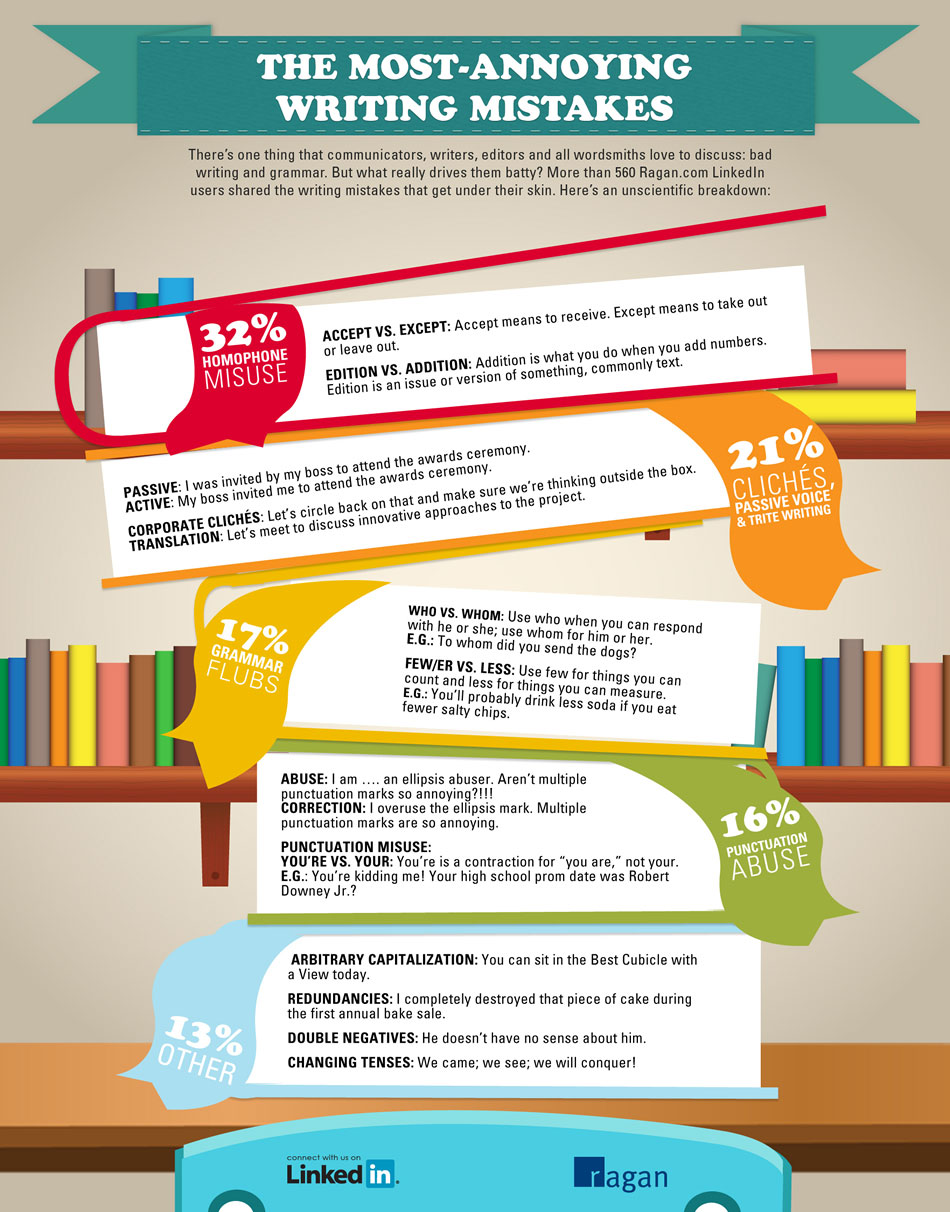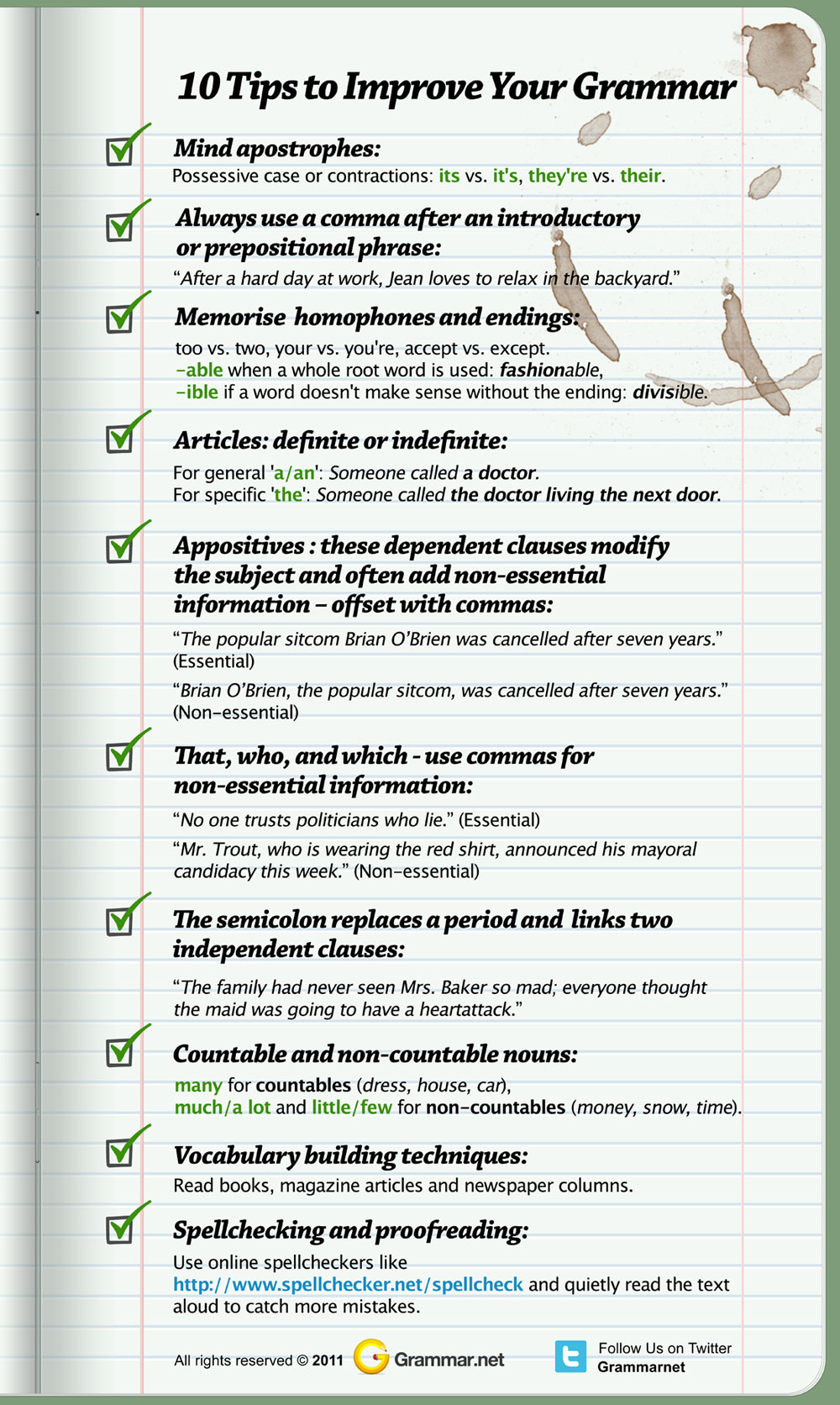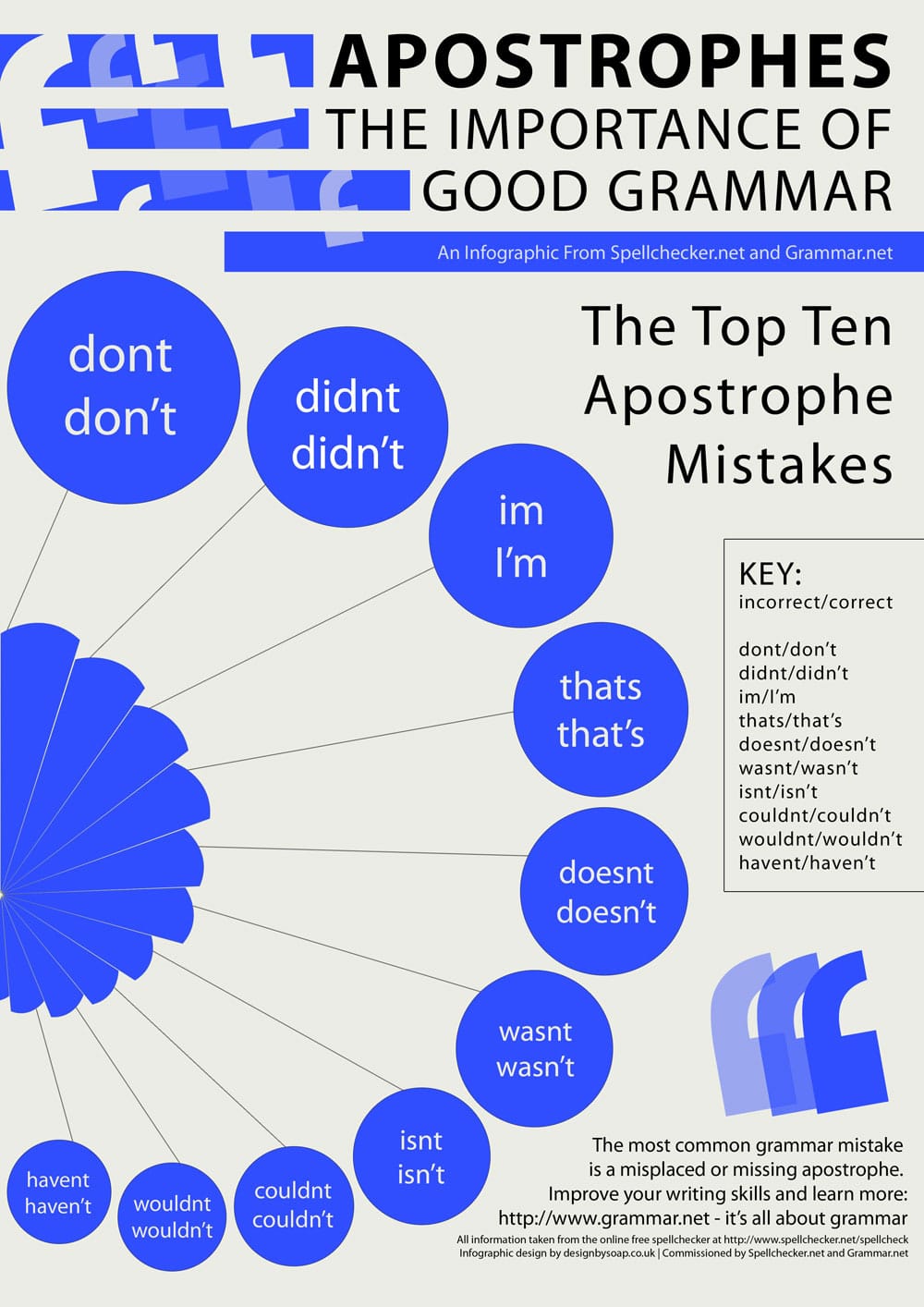I’m a real stickler when it comes to proper English grammar and punctuation. That doesn’t mean I’m good at it, it just means it matters a lot to me. I’m constantly learning about it, and I read tons of articles on the topic. There was one article I read about a year ago (I wish I could remember where it was), and it gave a very strong argument for why the word “that” is unnecessary about 80% of the time it’s used. That article truly changed my way of thinking, and now I delete the word “that” whenever I can. I have noticed a huge improvement in my writing simply because I made that one change. Sometimes all it takes is one article to make something click in our minds.
Another tip that I’ll share which might be useful when composing sentences has to do with the comma. Have you ever wondered why sometimes there is a comma before the word “and,” and sometimes there is not? The simple rule of thumb is that if there is a subject and verb on both sides of the “and,” it is appropriate to use a comma. If there isn’t, there is no need for a comma.
For example:
In this sentence, since there isn’t a subject and verb on both sides of the “and,” there is no need for a comma:
He found a Chinese restaurant online and took all his friends there to celebrate.
However, in this sentence, there is a subject and verb on both sides of the “and,” so it is appropriate to use a comma:
He found a Chinese restaurant online, and he took all his friends there to celebrate.
Strive for excellent grammar instead of perfect grammar.
As Richard pointed out when he wrote 15 Grammar Goofs That Make You Look Silly, nobody is perfect when it comes to grammar. No matter how much we edit, proof and try to carefully follow all the rules, there will still be mistakes. Sometimes I think those mistakes make us look human, and I don’t understand why Internet trolls often use a grammar mistake as an opportunity to leave a nasty comment. Sometimes we even make grammar mistakes on purpose to make a point or show some style. I don’t think there is anything wrong with that, and it can even enhance our writing sometimes.
I have a few friends who don’t speak English as their native language, and yet they still avidly blog in English. I have so much respect for them because it takes a lot of courage and confidence to put yourself out there like that. I found these four well done infographics which I thought might be helpful for anyone who is trying to learn more about English grammar, or for anyone who simply needs a grammar refresher.
I remember when I was in the 10th grade in high school, I took a college course in English grammar. It turned out to be a lot harder than I thought it would be, or maybe I was just too young to be in that class. The teacher, Mrs. Brown, always looked down on me as if I wasn’t good enough to be in there. It made me feel like I was a bad writer, and I took that energy and put it into learning everything I could about proper writing. Eat your heart out Mrs. Brown because I’ve written over 2,500 articles on this blog. You can do it too. It just takes practice, dedication and commitment!
Click Infographics To Enlarge
Via: [Grammar] [Ragan] Header Image Credit: [Learning English With Michelle]



